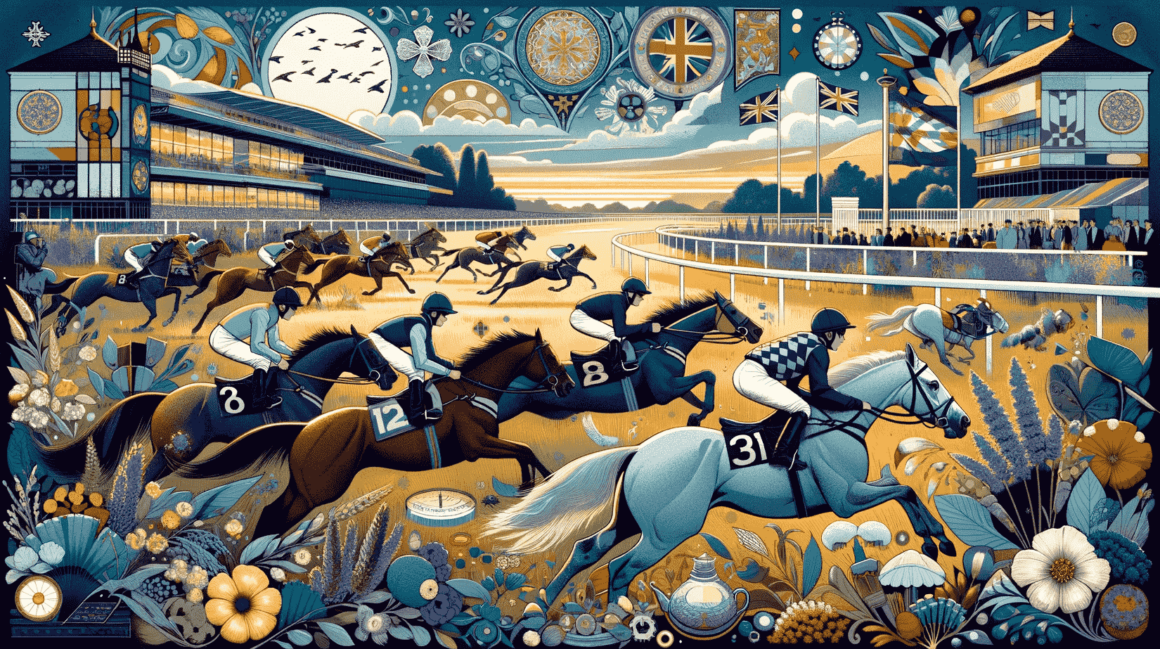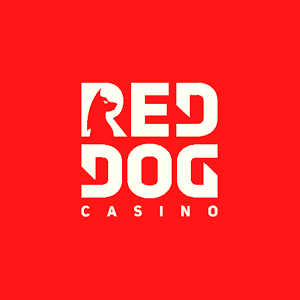History of British Horse Racing
Horse racing has a rich and long history and has been a treasured tradition and pastime in the United Kingdom for generations. British horse racing has won the hearts of millions of people from its humble beginnings to its current prominence as a beloved sport.
In this article, we will look at the history of horse racing in the United Kingdom, its current state, and iconic races that happened in the past.
Highlights of the Article
- Amphitheater chariot races popularised horse racing.
- King Henry VIII, who loved horse racing, helped popularise it in the UK in the 16th century.
- Horse racing began with the King’s Plate. This legendary race featured top horses and jockeys.
- In 1722, Queen Anne founded Ascot Racecourse.
- The first steeplechase championship captivated the UK in 1839.
- Technology made horse racing more enticing and relevant.
Timeline of British Horse Racing History

Horse racing has a long history in British culture, from its modest beginnings to its current status as a popular sport. The lengthy and varied history of British horse racing is a tale of tradition, passion, and remarkable accomplishments.
Here is this sport’s timeline and enduring legacy that has captivated generations.
Roman Era to Middle Ages
Chariot races were introduced during amphitheater events, which led to the rise in popularity of horse racing.
However, equestrian competitions took on a new look during the Middle Ages. The nobles started to love horse racing during this time. They were commonly held as events for festivals and contests.
16th Century
In the 16th century, horses of all kinds appeared, including individual horse matches and increasingly organized competitions with multiple competitors. Large wagers and awards in these races made the sport more exciting.
King Henry VIII’s Contribution
King Henry VIII, who had a profound and fond interest in horse racing and was instrumental in the sport’s growth, is credited for establishing horse racing’s popularity in the UK throughout the 16th century.
The nation’s first racetracks were built due to Henry VIII’s passion for horses and equestrian sports. Their racetrack offered a designated area for horse racing activities.
- Breed of Horses Act 1535 – King Henry VIII passed this act to preserve and improve the height and strength of horses.
- Horses Act 1540 – According to this act, no mare or stallion under 15 hands or 60 inches or 13 hands or 52 inches was allowed to run out of common land or to run wild, and no two-year-old colt under 11.2 hands or 46 inches was allowed to run out in any area with mares.
The first official horse race in the UK took place on the Rhoodee Fields in Chester. King Henry VIII made it happen. The event drew much attention and began the country’s long and storied horse racing history.
At this time, horse racing was done mainly by nobles and aristocrats, and the sport was crucial to the top classes. It was a way to show off money and social standing and have fun.
The King’s Plate
The King’s Plate, a crucial forerunner to contemporary horse racing, was introduced. The best horses and jockeys of the era competed in this famous race.
The founders established the groundwork for horse racing’s formalization as a sport. The industry’s growth created the foundation for future improvements in sports like cricket.
It introduced handicapping to promote fair competition and standardized race formats. It made a framework for rules and regulations.
Despite lacking sophisticated infrastructure present in modern times, horse racing played a crucial part in determining the course of the sport and prepared the path for its continuous development in the UK and beyond.
17th Century
The beginning of organized and proper horse racing occurred in the 17th century. By designating Newmarket as a specific racing location, King James I had a significant influence.
King James’s Royal Support
Horse racing became a sport that only the royal family could support. The oldest of the five classic races, the St. Leger Stakes, was started, proving that the sport has a long history.
Since its first run in 1776, the race has become a famous event many people look forward to.
By making Newmarket the place where horse races would take place, King James I had a significant effect on the growth and success of the sport. The changes in breeding, hatching, and feeding horses helped horse racing.
The Ascot’s Founding
During Queen Anne’s reign, horse races involving several horses on which spectators bet took over from match racing and became a professional sport, including the founding of Ascot in 1711.
18th Century
Queen Anne’s founding of Ascot Racecourse in 1722 was an important milestone. The historic Royal Ascot celebration, which still exists as a significant event in the British racing calendar, was launched with the construction of this racecourse.
The Jockey Club
The Jockey Club was created in 1750 and became famous in horse racing management. The club was essential in governing and planning races, assuring fair competition, and upholding the sport’s credibility.
The club was made to make rules for horse races more consistent. Before this, races often settled unofficial deals between owners and competitors.
Also, in the 1800s, racetracks with much history started to pop up all over the UK. Horse racing fans had a place to gather and watch interesting races because of these places.
The Jockey Club affected the rules, which made the sport more professional and legitimate by making the rules more uniform and the same at all racetracks.
Well-Known Racetracks
Newmarket, Epsom Downs, Doncaster, and Goodwood were well-known during this time. These places held regular races and became famous sites for the sport, which brought fans from all walks of life.
The runs turned into social events that brought people together and made them feel excited and closer. Because important people and nobles took part in and supported the sport, horse racing was a sign of wealth, rank, and social standing.
Other Popular Racetracks Opened in the 18th Century:
| Racetrack | Country | Year Opened |
| Aintree | England | 1829 |
| Bangor-on-Dee | Wales | 1859 |
| Goodwood | England | 1802 |
| Kelso | Scotland | 1822 |
| Musselburgh | Scotland | 1816 |
| Exeter | England | 1804 |
| Great Yarmouth | England | 1810 |
| Huntingdon | England | 1886 |
| Kempton Park | England | 1878 |
| New Castle | England | 1882 |
The Grand National
In the 1800s, the Grand National was one of the most exciting horse races in the UK. In 1839, the first national championship steeplechase race captivated the country and drew huge groups of loyal fans.
19th Century
Popular Horse Races
In the 19th century, famous horse races like the Derby Stakes, the Oaks, and the 2,000 Guineas made horse racing in the UK very popular. During this time, these races were important parts of the program for classic races.
Queen Victoria’s Royal Support
Queen Victoria loved to watch horse races. Her support and love for the sport were key to making it popular.
She worked hard to help horse training and racing businesses grow in the UK. This helped the sport grow and get better at the time.
Successful Jockeys
Jockeys and coaches who were well-known in horse racing emerged. These people, like Fred Archer, George Fordham, and John Scott, had a lot of success and left their mark on the history of horse racing in Britain.
As breeding methods, track building, and race schedules improved, so did the horse racing business. The sport grew and got better because of these changes.
20th Century
Technology improved timing and live conferences, changing the sport. High-speed cameras and computerized timing systems enhance the drama and excitement of races.
Legendary Horses
Legendary horses like Nijinsky, Red Rum, and Arkle cemented their positions in the annals of horse racing history with noteworthy and inspirational performances.
Red Rum was acclaimed as a national hero for his outstanding performance in the Grand National, a renowned steeplechase race held at Aintree Racecourse. It achieved a remarkable feat with three Grand National titles in 1973, 1974, and 1977.
The Royal Ascot Established
The famous Royal Ascot meeting is held at the Ascot Racecourse, which opened its doors in 1711. It now carries a connection to the British monarchy. In the new millennium, British horse racing has experienced remarkable growth and recognition on a global scale.
Modern Era
The modern era of horse racing has brought a lot of opportunities to everyone involved. With modern technology and growth in population, the future is thriving.
The 2000s
Like Frankel and Enable, legendary horses with extraordinary potential enthralled the globe in the 2000s. Other horses include:
- Best Mate – won Cheltenham Gold Cup three times
- Nijinsky – Voted as a horse of the millennium
- Yeats – hailed as the greatest runner of the new millennium
The 2010s
The 2010s saw British-trained horses enjoy big success on the world scene, which led to more recognition on a global scale.
Also, in 2010, audiences were captivated by notable races and victories by well-known jockeys, owners, and trainers and the expansion of high-profile competitions like the Epsom Derby and Cheltenham Festival.
The 2020s
In the 2020s, they witnessed British horse racing’s resilience and adaptation. The COVID-19 pandemic didn’t stop the sport and its fans from being widely celebrated.
British horse racing is growing in popularity, audience, and racehorse welfare. Technology, better training, and sustainability programs enhance the sport’s future.
The future of British horse racing will depend on how well we embrace technology breakthroughs and how well we put sustainable policies into effect. This adds up to the current gambling stat in the UK.
Horse racing in England today’s continued globalization and engagement with a larger audience will boost its development and acceptance.
The long-standing history of horse racing, while audience trends, will change along with the media landscape.
Final Words
From its ancient beginnings in Roman chariot races to the modern spectacle watched by millions, British horse racing has endured the test of time and cemented its place as a beloved aspect of the country’s athletic legacy.
Horse racing in the United Kingdom continues to change and captivate spectators worldwide. It is also influenced by monarchs, formed by passion and dedication, and commemorated via significant events.
British horse racing continues to be the pinnacle of the “Sports of Kings” with its rich history and promising future.
FAQ
Why is horse racing so popular in the UK?
Horse racing’s popularity in the UK can be attributed to its long history, cultural relevance, and prominent events like the Grand National and Royal Ascot.
Did horse racing start in England?
Yes. Horse racing has a rich history that extends back many centuries.
What is horse racing called in the UK?
In the UK, horse racing is frequently called “the sport of kings.”
What is the horse racing capital of the UK?
Newmarket, famous for its racetrack and British thoroughbred horse racing hub, is frequently regarded as the country’s horse racing capital.
What is the major horse racing event in England?
The Grand National, which takes place yearly at Liverpool’s Aintree Racecourse, is the country’s most significant horse racing occasion.
 BC.Game
BC.Game  7Bit
7Bit  Ducky Luck
Ducky Luck  Red Dog
Red Dog